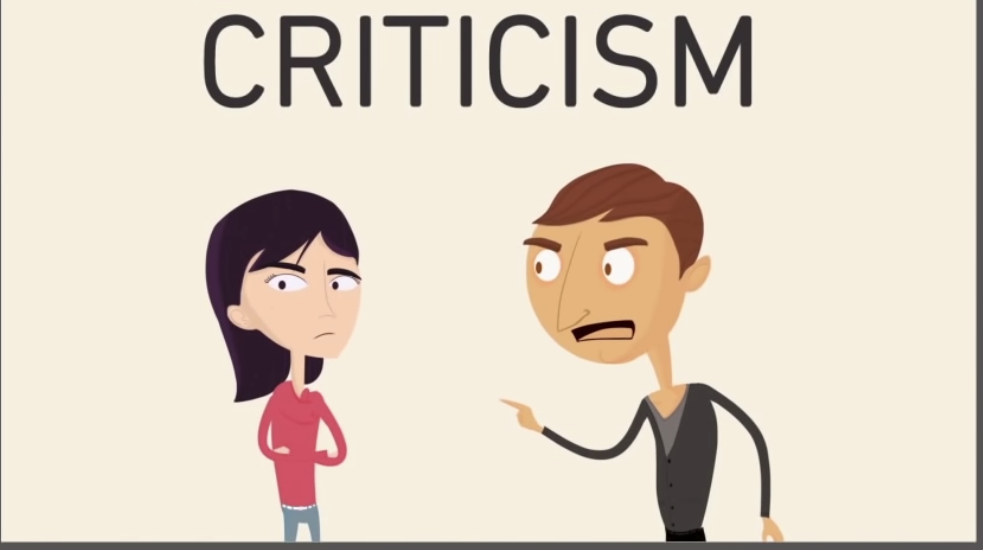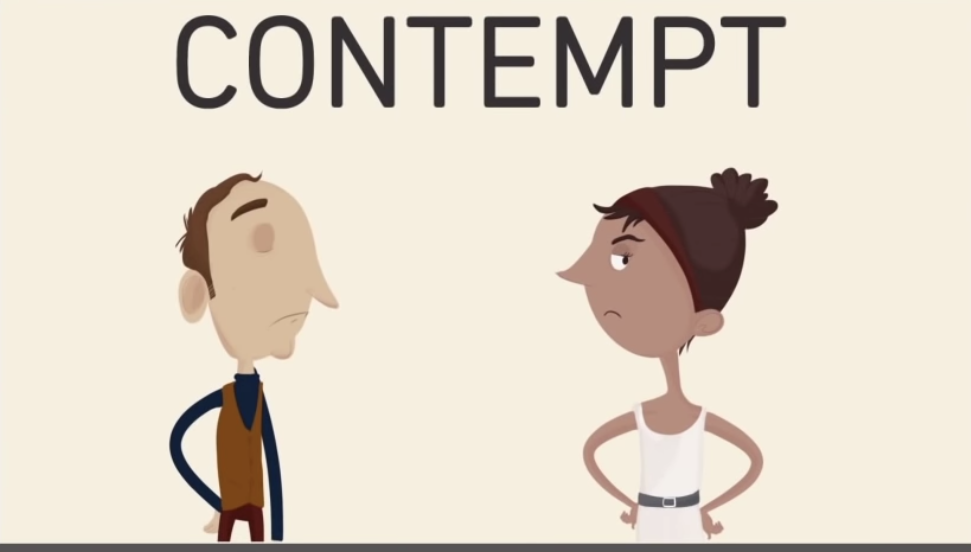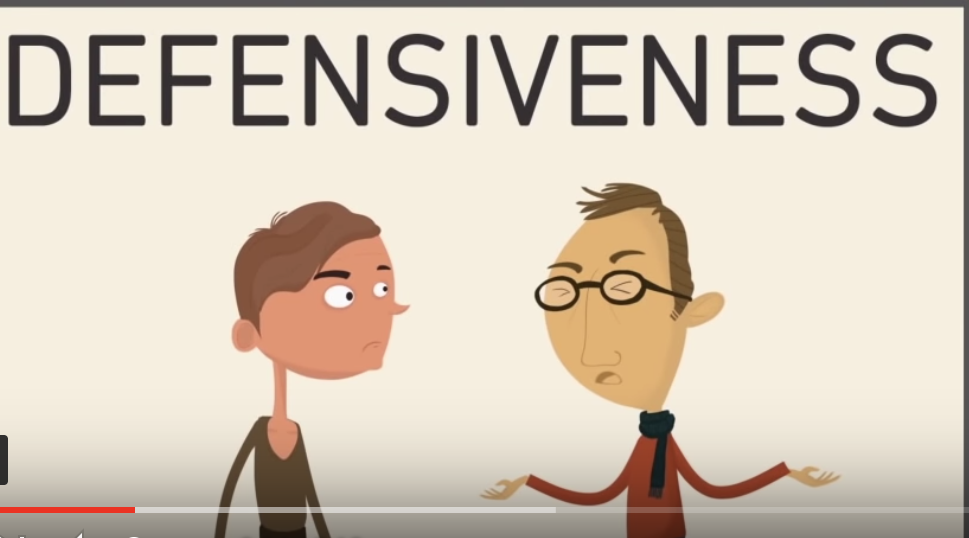Certain negative communication styles are so lethal to a relationship that Dr. John Gottman calls them the Four Horsemen of the Apocalypse. They predict relationship failure with over 90% accuracy if the behavior isn’t changed.
Chapter 6 of Revelation in the Holy Bible describes of four horsemen tied to judgments that will come upon the world, and therefore these four horsemen in the popular culture have become associated with destruction.
The Four Horsemen of the Apocalypse describe conquest, war, hunger, and death respectively. John Gottman uses this metaphor to describe communication styles that, according to his research, can predict the end of a relationship. The four “marriage horsemen” mentioned by John Gottman will certainly bring destruction to a marriage if they go unchecked.
1. Criticism

The first horseman is criticism. When we criticize others, including our spouse, we attack their personality or character, usually with blame, rather than a specific behavior. Criticizing our partner is different than offering a critique or voicing a complaint. The latter two are about specific issues, whereas the former is an attack on our partner at the core of their character. In effect, we are dismantling their whole being when we criticize them.
There is an important difference between expressing a complaint and criticizing. For example:
- Complaint: “I was scared when you were running late and didn’t call me. I thought we had agreed that we would do that for each other.”
- Criticism: “You never think about how your behavior is affecting other people. I don’t believe you are that forgetful, you’re just selfish. You never think of others! You never think of me!”
To be critical of each other doesn’t necessarily means that our relationship is doomed to fail. However, when criticism becomes pervasive, it paves the way for the other, far deadlier horsemen to follow.
Because it makes the victim feel assaulted, rejected, and hurt, it often causes the perpetrator and victim to fall into an escalating pattern where the first horseman reappears with greater and greater frequency and intensity, which eventually leads to contempt.
2. Contempt

When criticism becomes pervasive, it opens the door to the second horseman, contempt. When we communicate with contempt, we become mean, we treat our spouse with disrespect, sometimes we mock them with sarcasm, ridicule, or even call them names, and use body language such as eye-rolling or scoffing. The target of contempt feels despised and worthless.
Contempt is a step above criticism, because while criticism attacks our partner’s character, contempt assumes a position of moral superiority over them, such as:
“John, you’re a failure as a husband and father!” or “I had to call the baby-sitter again today because you are so lazy!”
Interestingly, research shows that couples that are contemptuous of each other are more likely to suffer from infectious illness (colds, the flu, etc.) than others due to weakened immune systems!
According to Gottman’s research, contempt is the single greatest predictor of divorce.
3. Defensiveness

The third horseman is defensiveness, and it is usually a response to criticism. This horseman is nearly omnipresent when relationships are beginning to fail. When we feel unjustly accused, we look for excuses and try to play the innocent victim in the hope that our partner will stop.
At this point, we refuse to acknowledge our part in the problem. We deny responsibility and make excuses and counteraccusations instead of listening to our spouse’s concerns. We insist in passing all responsibility for fixing the problem back to our spouse.
Unfortunately, this strategy is almost never successful. Our excuses just tell our partner that we don’t take their concerns seriously and that we won’t take responsibility for our mistakes.
While it makes sense to defend ourselves when we feel attacked, this strategy will not solve the problem. Defensiveness most of the time will escalate the conflict, unless the critical partner decides to back down and apologize. This is because defensiveness doesn’t allow for healthy conflict management.
4. Stonewalling

Defensiveness often escalates to stonewalling, the fourth horseman. To stonewall means to simply walk away from the problem and cut off all interaction, and simply stops responding to our partner. Problems in a marriage may never be solved when one spouse refuses to discuss it.
Rather than confronting the issues with their partner, people who stonewall can make evasive maneuvers such as tuning out, turning away, acting busy, or engaging in obsessive or distracting behaviors.
It takes time for the negativity created by the first three horsemen to become so overwhelming that stonewalling becomes an understandable solution. However, stonewalling isn’t easy to stop. It is a result of feeling physiologically flooded, and when we stonewall, we may not even be in a physiological state where we can discuss things rationally.
Consequences
The consequences of allowing the four horsemen into a marriage can be devastating. The negativity cycle has a predictable train of events. When problems are not worked through, couples often become so upset that constructive discussion is not possible. They feel that talking the problems out is useless. Often they start to lead parallel lives in which they seldom spend any time with each other. All of this brings feelings of loneliness and rejection.
The final stage before breakup is for the couple to start rewriting their history: they forget all the good times and rewrite the past in light of their present feelings.
About John Gottman

John Gottman (born April 26, 1942) is an American psychological researcher and clinician who did extensive work over four decades on divorce prediction and marital stability.
He is also an award-winning speaker, author, and a professor emeritus in psychology. He is known for his work on marital stability and relationship analysis through scientific direct observations, many of which were published in peer-reviewed literature.
The lessons derived from this work represent a partial basis for the relationship counseling movement that aims to improve relationship functioning and the avoidance of those behaviors shown by Gottman and other researchers to harm human relationships.
Dr. John Gottman and Dr. Julie Schwartz Gottman co-founded and lead a relationship company and therapist training entity called The Gottman Institute.
Gottman was recognized in 2007 as one of the 10 most influential therapists of the past quarter century. “Gottman’s research showed that it wasn’t only how couples fought that mattered, but how they made up. Marriages became stable over time if couples learned to reconcile successfully after a fight.”

Trackbacks/Pingbacks